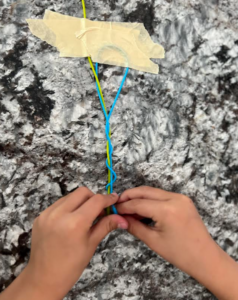Shari Frost
Contributor, Choice Literacy
"Most people do not listen with the intent to understand; they listen with the intent to reply."
Stephen R. Covey
Stephen R. Covey
I was enjoying one of those magical moments of teaching, the kind of moment that all teachers live for. I was sitting at a table with some of my first graders and we were writing together. Occasionally, someone would read a line aloud and we’d admire how beautiful it was. Someone else would share an idea and we’d agree that it was brilliant. Or someone would ask a question and we’d generously share our wisdom with our fellow writer. The child who was sitting right next to me stopped, put her pencil down, looked up at me, and said, “Mrs. Frost, how do you make babies?”
I quickly examined my options. What should I say? What should I do? How could I explain it? Should I explain it? Should I suggest that she ask her mother when she gets home? Should I try to distract her, maybe send her off on an errand to sharpen pencils or get more markers? While I was grasping at straws for my next move, the child on the other side of her leaned over, looked at her paper, and said, “Change the /y/ to /i/ and add /-es/.” The child who asked the question thanked her classmate and continued writing. I let out a huge sigh of relief and tried to continue with my writing, too.
This incident occurred decades ago, and I have recounted it many times, always to the complete delight of my audience. Looking back on it, I now see it for what it truly was – a real teaching misstep. A child asked me a question. My first inclination was to give her an immediate answer. It is a rather antiquated view of teaching – the teacher as the all-knowing dispenser of knowledge.
The situation called for more listening, not answers from me. I could have said, “Hmm . . . say more about that,” instead of rushing off in pursuit of the answer. Listening is the most powerful tool in our teacher’s toolbox. Unfortunately, it is often pushed aside for its noisier, more demanding counterpart. Even in situations where the prospect of providing an answer doesn't induce discomfort, we often charge full steam ahead.
I just wonder, how many times have I rattled off answers, instead of allowing children to find their own answers? I wonder how many of “my answers” were quickly forgotten because they came so quickly. How many opportunities were lost for a child to discover something for herself?


Love it! Such a great reminder to listen to understand rather than to reply.
ReplyDelete